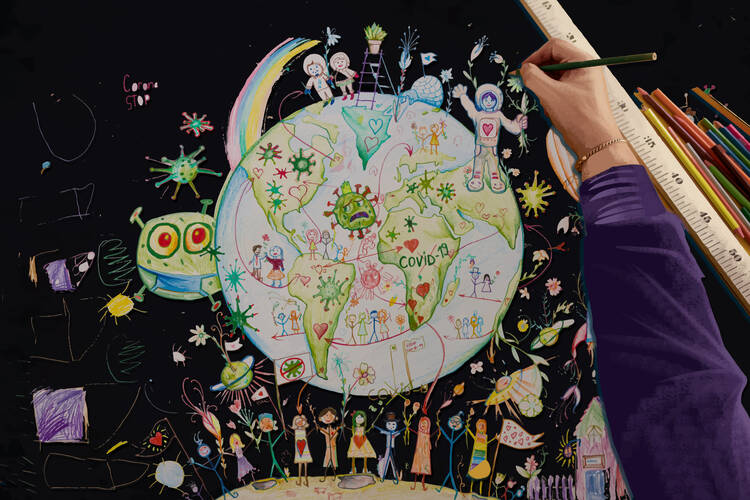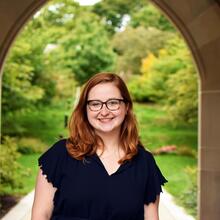I was a big fan of historical fiction as a child. I loved to read books, watch movies and play pretend with my little sister in ways that transported me to another time and place, often one with high stakes and high drama. I found that the most intense of imaginary historical scenarios were best suited to storylines of mystique, romance, excitement.
When the Covid-19 pandemic began, I realized that this was the kind of event that would have fascinated younger me. I can picture myself with my nose in any book I could find about what this time was like, doing my research so later I could arrange a historically accurate game in which my sister might play the doctor to my patient, or we might pretend to be in quarantine.
I thought a lot about this at the beginning of the pandemic because, well, when you are living through a global tragedy, the last thing it feels like is a game. I missed the days when I could stop disasters in time for dinner.
The truth is that living through something as unprecedented and serious as the Covid-19 pandemic is less about the grand moments that begin or end historical fiction as it is about the long line of days in between. It’s characterized less by dramatic rises and falls in action than it is by a lingering stress that sits at the back of your mind no matter what, following you into the car and the kitchen and even your bed at night.
But until you experience something of this magnitude, you can’t know that. For now, when we process the last three years, we’re mostly talking to people who understand, who experienced many of the same pains and stresses and milestones as we did.
I’ll pray that their lives are free of times like this one. I’ll know they probably won’t be.
One day, though, Covid-19 will be a story, one that we package and deliver to people who never lived through it. They’ll learn about it through memorials and moments of silence, and they’ll memorize dates and important facts for a history test.
I’ve tried to prepare for that future, for the time when I’ll be older and on the other side of an imaginary divide between those who remember and those who don’t. What will I tell my children about the event that turned my young adulthood on its head? How will I explain the scale, the fear, the loss? How about the generosity, the random acts of kindness, the virtual community in the midst of it all?
Maybe I’ll just tell them about it in days.
I’ll tell them about the day I got an email saying I had to pack up my college dorm and go home, two months before I was supposed to graduate. I’ll tell them about how my roommates and I dragged our mattresses out of our rooms and down the stairs to our living room so we could all be together as we talked and laughed and cried late into the night.
I’ll tell them about the summer days I spent with my nana. The puzzles. The chats on the porch. The family meals around the kitchen table. And the fact that even amid all the fun and happiness of that unexpected time together, I would quietly worry about my worst fear: that she would get sick.
I’ll tell them about the day my mom helped me move to New York so I could start work at America. How we worked mostly in silence as we set up the bedframe and the desk and the bookshelf. How it was only later that we admitted to each other that we were both wondering whether I should just get in the car and go back home with her, driving away from the city’s climbing case numbers and the strange apartment and the loneliness of not knowing anyone there.
I’ll tell them about the day I finally got the vaccine. About taking the long way home and soaking in the relief, releasing some of the stress of a year inside.
I’ll tell them about lots of Zoom get-togethers and remote work. About wearing masks and showing vaccine cards. About dozens of negative tests and one positive one. About thanking God for health, for family, for ways to stay connected even though life is often hard.
I’ll take the responsibility of passing the story along seriously, while also accepting that there’s only so much they’ll be able to grasp. I’ll pray that their lives are free of times like this one. I’ll know they probably won’t be.
I’ll let the tale be as messy as my storyteller’s brain will allow it to be: happy and sad, slow sometimes and action-packed in others, not so much ever resolved as simply evolved over time. That way, whatever they can take from it, it will be real.








